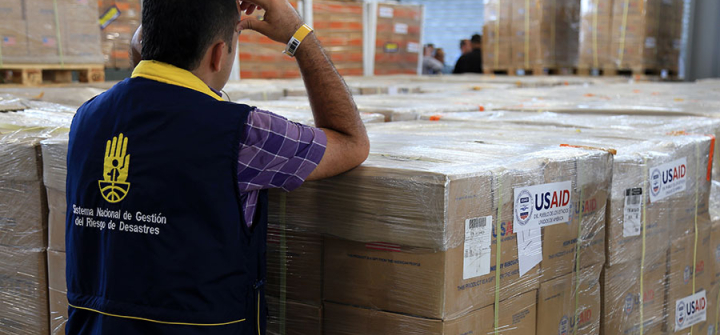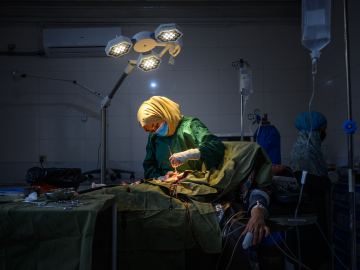When Our Valuation of Democracy Wavers
With the built-in injustices of the US health care system on full display as COVID-19 ravages communities, imagine that Switzerland, France, and Spain—which all fare better in health system efficiency—band together to redesign US health care.
The European countries might host roundtable discussions and virtual conferences—hiring health and development experts from around the world, but inviting few Americans—offer new funding for researchers to study the US, and design a plan to completely overhaul US health care. But if we reject their plan, they might label us uncooperative and unilateral, and even threaten tariffs and reworked trade partnerships.
Americans would not respond too favorably, I’m sure. We’d likely question why these European nations think they can tell us what to do, suggest they are undermining our democracy, and reaffirm our sovereign statehood.
Yet these practices are the norm for promotion of international development and democracy overseas—particularly in the Global South—by wealthy nations and prominent development agencies like the World Bank, UK’s Department for International Development, and USAID. These development bureaucrats often coordinate economic activity inside nations and operate with little attention to on-the-ground realities. But there is an important need to make this practice strange and question the foundations of the contemporary international development industry.
Despite the failure of these top-down, Westerner-led interventions to bring about meaningful change, they continue. Look no further than USAID’s June 2020 recommendation that the Ugandan government cut free maternal health services for women and replace its public health care model with privatized health services and user fees. Such a change risks making health care inaccessible for poor women in Uganda, and the detrimental consequences of user fees are well-known to this part of sub-Saharan Africa.
Tracy Kidder’s book, Strength in What Remains, reveals how World Bank-recommended user fees panned out in Burundi. He tells of a woman who was hit by a car, sought treatment in a local hospital, and fell into debt as a result. The woman was then detained in a special unit of the hospital until the user fee was paid. The same hospital even applied the policy to the corpses of those who died with unpaid bills until local authorities intervened.
The foreigners who advocate for these policies and structural programs designed to “save” and “develop” these nations never endure the harsh consequences, or face sufficient accountability. Ironically enough, USAID claims to “promote and demonstrate democratic values abroad” in its mission statement.
How can these experts profess to defend democracy while excluding nationals from conversations about their future? At what point do these development institutions and their logics, ethics, and practices undermine democracy? This approach to development is not just ineffective but neocolonial. It seems easy for us to tell Uganda and Burundi what to do, but what about Switzerland, France, and Spain telling us what to do? One is normalized; the other is absurd.
How do we account for this sobering dissonance? It is not that there are no domestic practitioners and scholars skilled enough to carry out development projects—a demoralizing, racist, and outright wrong assumption. Nor is it that local culture is “not conducive” to development—another trope used to describe low-income countries where these projects often fail. The only rational explanation is that our valuation of democracy wavers depending on where it is applied. We claim to value democracy so much, but our actions indicate we only care about our own.
Unfortunately, international development has always been an industry of wildly unequal stakeholders. We can no longer continue these practices under the guise of humanitarian action, and as a community, we must unabatedly denounce them every time they appear.
Dalton is a D.Phil. candidate in anthropology at the University of Oxford. His research focuses on global health governance and the role of humanitarian actors in fragile and conflict-affected states. Twitter: @daltonprice386
For the latest, most reliable COVID-19 insights from some of the world’s most respected global health experts, see Global Health NOW’s COVID-19 Expert Reality Check.
Join the tens of thousands of subscribers who rely on Global Health NOW summaries and exclusive articles for the latest public health news. Sign up for our free weekday enewsletter, and please share the link with friends and colleagues: https://www.globalhealthnow.org/subscribe
Humanitarian supplies wait at the Tienditas International Bridge in the border city of Cucuta, Colombia on February 21, 2019. Image: Lokman Ilhan/Anadolu Agency/Getty




